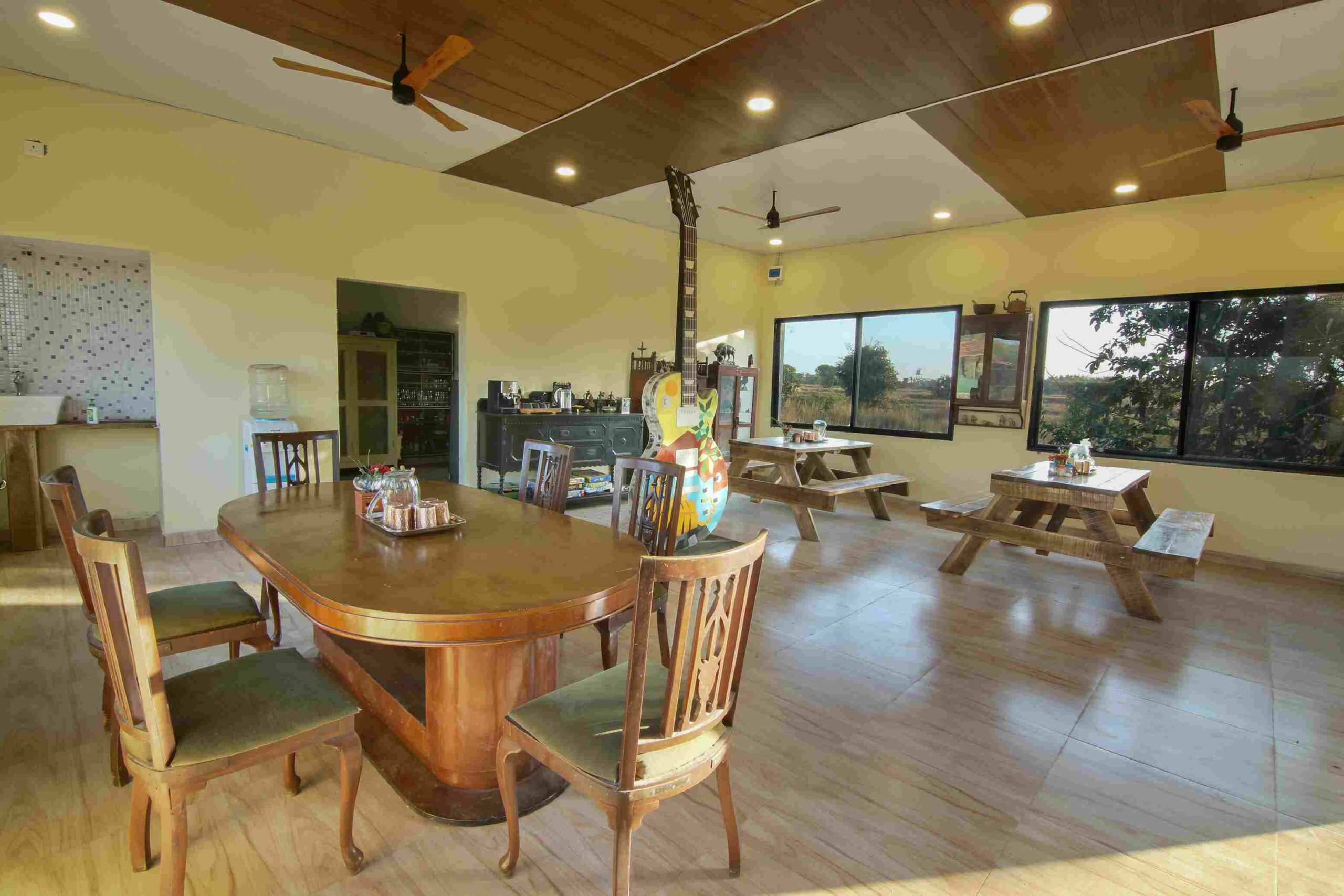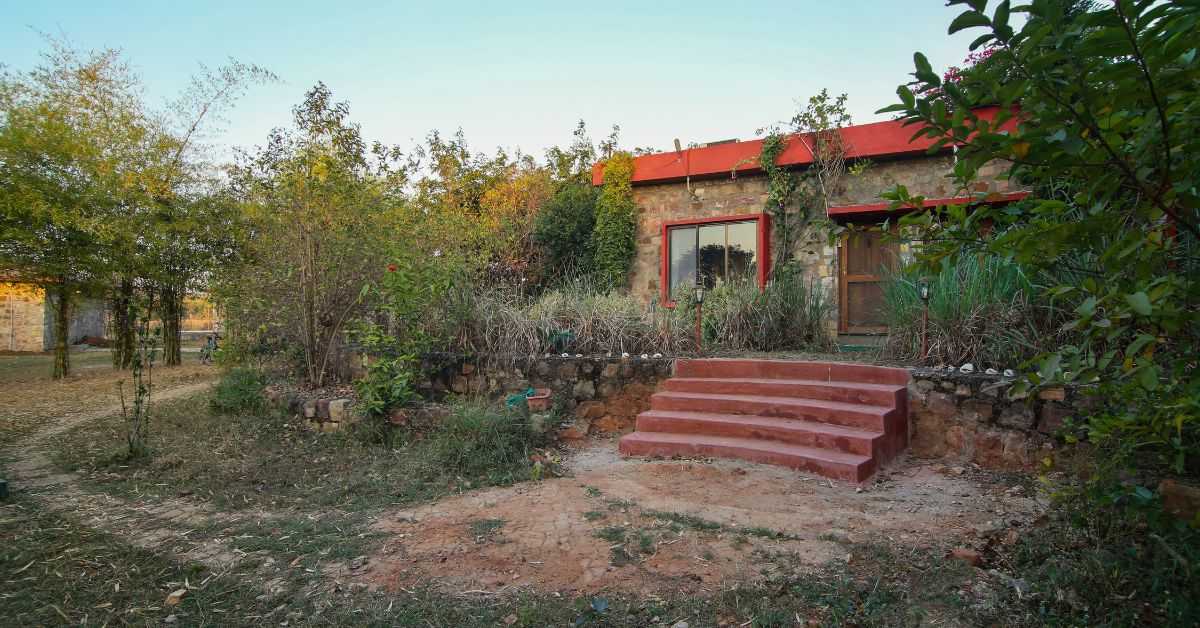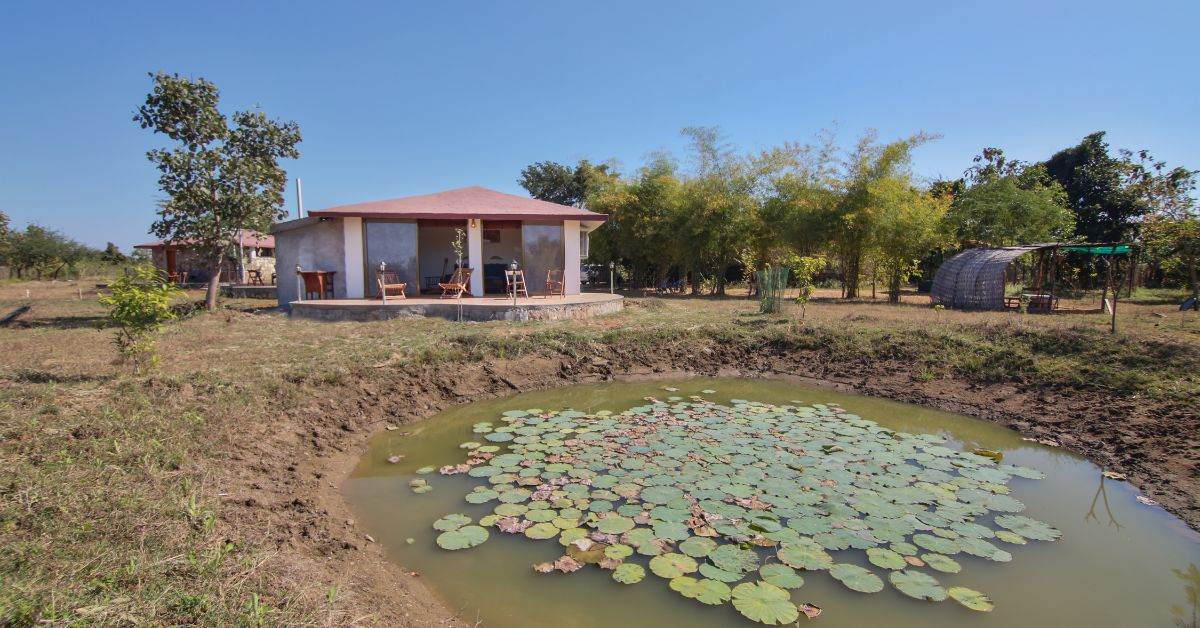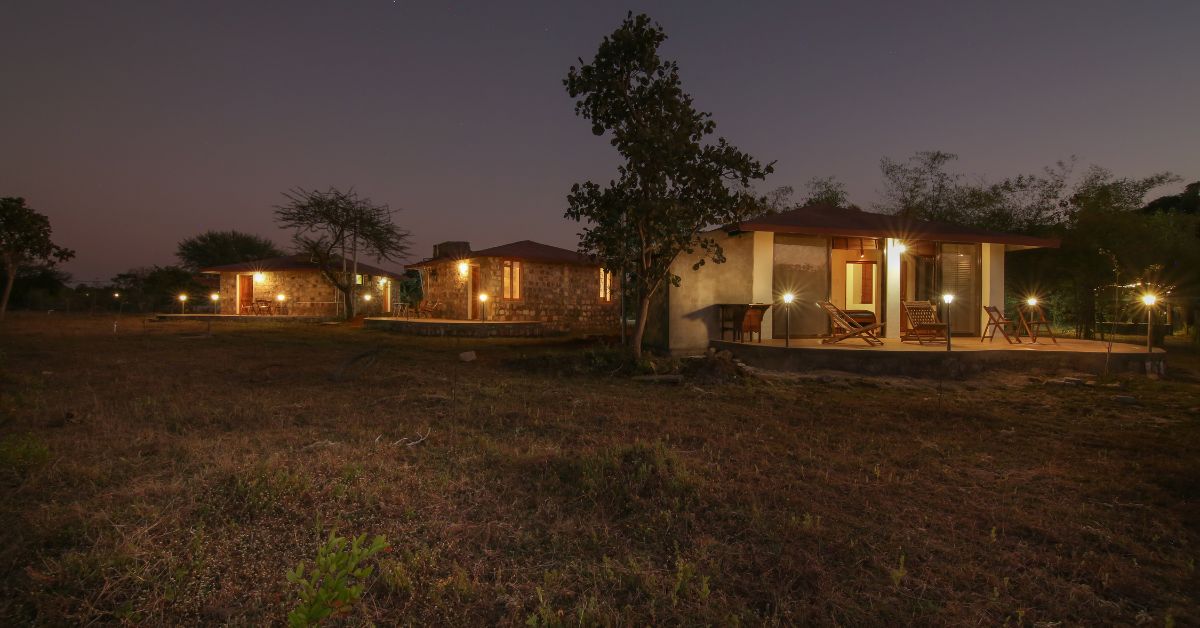In 2015, a pair of spotted owlets paid a visit to a newly set up farmhouse in Maharashtra’s Tadoba, a 12-hour drive from Mumbai. After a wonderful stay, the birds were reluctant to leave. In fact, as Avantika Chandra and Hans Dalal were setting up their homestay on the land, the owlets proved to be great company.
As their avian family grew, with many hatchlings added to the tribe, the farm stay was experiencing a journey of its own. And the duo felt it was only right when the time came, to christen the place in honour of the birds.
Today, the guest list at The Spotted Owlet Farm House includes city folk from across India as well as the local wildlife — hare, mongoose, snakes, scorpions, lizards, over 60 bird species, over 20 butterfly species, tigers, leopards, wild boar and deer, to name a few. Both are encouraged to coexist.
And the property’s proximity to the Tadoba-Andhari Tiger Reserve — a deciduous forest ecosystem that harbours hundreds of tigers — makes it an ideal choice for guests who are here to watch sambar, chital and gaur.
While the story of the homestay’s inception piques the interest of many travellers, the rollercoaster journey of Avantika and Hans evokes a similar feeling. Following 12 years in the aviation industry, Avantika quit to turn her attention to a much loved subject, one that she’d been drawn to since childhood.
In 2010, instinct led the New Delhi native to quit her corporate role to transition into the conservation of forests and wildlife full-time. In 2013, she was joined in her quest by Hans Dalal, a sound engineer turned conservationist, and the duo founded PROWL. The NGO has since then been dedicated to working tirelessly to save the tiger population in India.
This is their story.

The moment that shaped it all
Hans’s studio in Mumbai witnessed many fascinating projects. “I had the opportunity to work with notable artists like Trilok Gurtu and Vishal-Shekhar as well as the Discovery Channel, producing sound for nature shows,” he shares with The Better India. But it was around 2007 that the love for nature overtook this passion when Hans had his first tiger sighting.
“It gradually pushed me further away from music and closer to the jungles,” he shares, adding that the more he visited the forests, the more he wanted to learn about the problems faced by wildlife. A defining moment was in February 2009 when Hans met Fateh Singh Rathore, hailed as ‘India’s Tiger Man’ for his legendary knowledge of the big cat.
Hans recalls being so inspired by the man and the work he was engaged in that he took up a conservation course. When Avantika and Hans met, something clicked. Their objectives aligned and two years later, PROWL was born.
In fact, Avantika goes on to explicitly note that they had no plans for a homestay at the time. “It was supposed to be more of a base for the work we were doing through PROWL.” But the initial years spent visiting different jungles in an attempt to educate themselves to work with the local communities changed their perspective.
“Whenever we visited any national park or reserve, we would have to stay at a regular resort or hotel, no different from the ones we found in cities.” Avantika adds that it was these experiences that fuelled their intent to create a wholesome jungle experience. That was the idea from which The Spotted Owlet Farm Stay was born in 2020 after six years of rigorous work on the land.

An oasis of greenery to look forward to
Guests can choose from the three private cottages — Ranthambore, Tadoba and Bandhavgarh — that pay tribute to some of the duo’s favourite national parks. The decor and artwork in these cottages are an ode to the geography of these respective national parks along with the wildlife in these areas.
Right from the inception of the cottages using locally-sourced and recycled materials — stones, gravel, bamboo, and old Mangalore tiles — to the transformation of the land into an orchard, every corner reflects taste.
The duo’s savviness with nature lent to their expertise while transforming the land from its previous barren state to one that is in abundance. Recalling the journey, Hans notes, “When we started in 2014, there were absolutely no local trees or even shrubs present owing to the years of chemical usage by the farmers in the past. The mud was hard and completely devoid of nutrition.”

In order to turn things around, they approached Avantika’s mother for her prowess with plants and natural farming. A month spent with her and they soon became adept at working with natural fertilisers made from desi cow dung, jaggery and gram flour.
To add to this, they also started a vermicompost pit. Months later, the land was unrecognisable. “From hard lumps of mud, we had rich, fertile and nourished soil that could grow absolutely anything we planted in it,” exclaims Avantika.
The 700 trees of more than 50 varieties like teak, palash, tendu, mahua, babul, ber, mango, guava, drumstick, coconut, papaya are testament to the duo’s learnings of organic farming. As night sets in at the farm stay, tables creak under the weight of traditional meals prepared from the fresh produce — jhunka bhakar (a Maharashtrian dish of made with gram flour and thick jowar flatbread), Sindhi kadhi (a gram flour based curry with vegetables), dal dhokli (a Rajasthani dish made with lentils), among others.

While the green landscape is the main allure at The Spotted Owlet Farm House, Avantika nudges guests to go beyond the land and explore. The Tadoba-Andhari Tiger Reserve in the neighbourhood is to credit.
“You can check out the gypsy/canter safaris here, while going on a boat safari through the butterfly garden located in the buffer zone of Tadoba and Irai Dam,” she says. In fact, the love for sustainability has set the stage for the numerous other initiatives that they have undertaken on the land.
These include permaculture techniques, recycling of grey water in sinks, creation of swales to enable maximum water and nutrient absorption in the soil, amongst others. Water conservation is a highlight at the farmstay and the three rainwater harvesting percolation ponds harvest approximately 10 lakh litres of water per year.

“Most of this is used to recharge the groundwater,” explains Hans, adding that about 1.5 lakh litres goes towards irrigation purposes.
Another unique inclusion at the farmstay are the fish and the ducks in the fond. “The ducks’ waste helps to naturally seal ponds so that they hold water for longer while the fish help to reduce the presence of mosquitoes significantly,” he elaborates.
Credit the duo with building this fantasy piece of land in a nature zone and they say they owe it to their conservation background.
“Being conservationists has taught the two of us a lot about ecosystems and how to create one of our own. This background has been the driving force behind several initiatives present on our property,” Hans concludes.
Edited by Padmashree Pande.
No comments:
Post a Comment